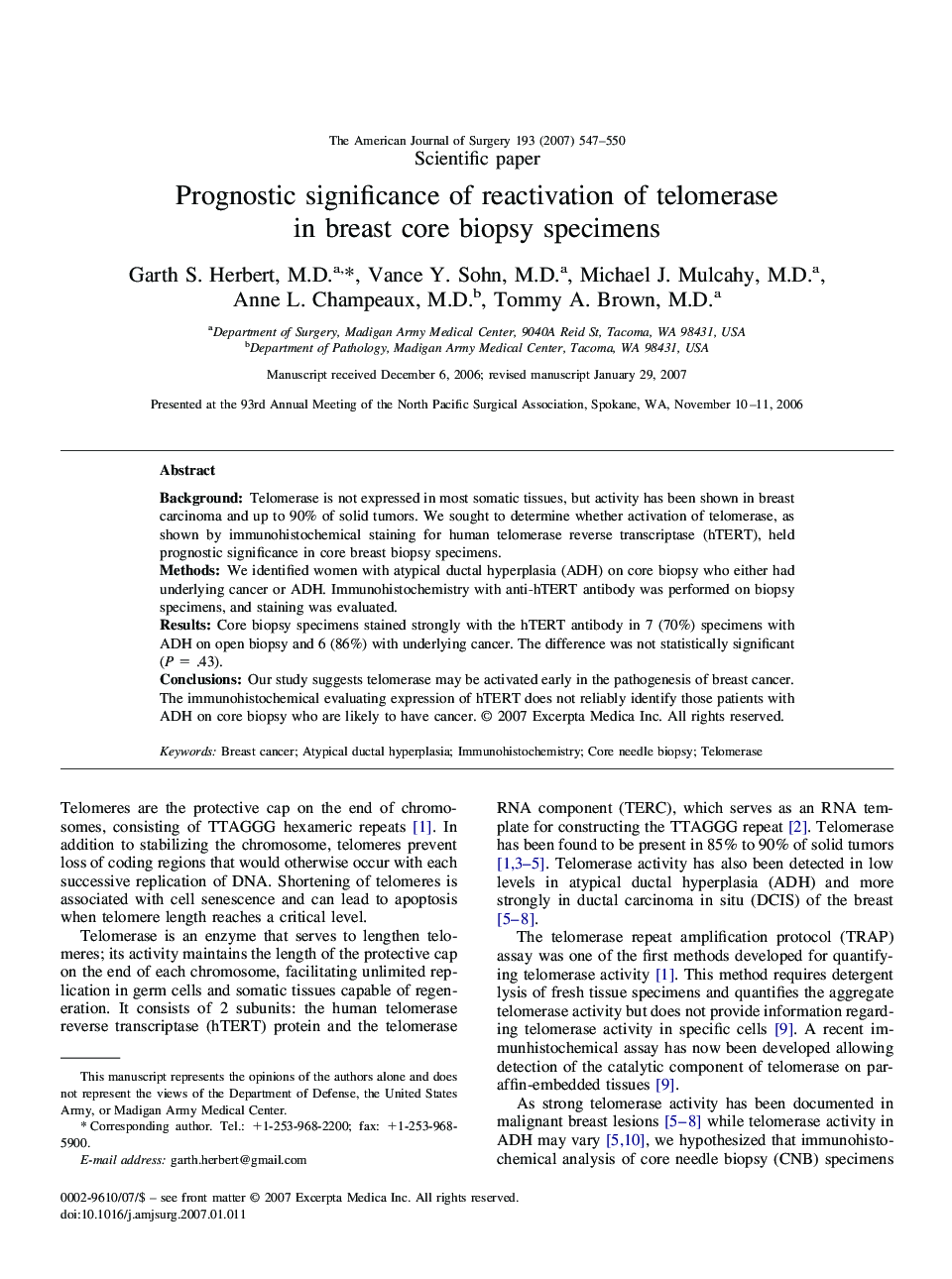| Article ID | Journal | Published Year | Pages | File Type |
|---|---|---|---|---|
| 4282300 | The American Journal of Surgery | 2007 | 4 Pages |
BackgroundTelomerase is not expressed in most somatic tissues, but activity has been shown in breast carcinoma and up to 90% of solid tumors. We sought to determine whether activation of telomerase, as shown by immunohistochemical staining for human telomerase reverse transcriptase (hTERT), held prognostic significance in core breast biopsy specimens.MethodsWe identified women with atypical ductal hyperplasia (ADH) on core biopsy who either had underlying cancer or ADH. Immunohistochemistry with anti-hTERT antibody was performed on biopsy specimens, and staining was evaluated.ResultsCore biopsy specimens stained strongly with the hTERT antibody in 7 (70%) specimens with ADH on open biopsy and 6 (86%) with underlying cancer. The difference was not statistically significant (P = .43).ConclusionsOur study suggests telomerase may be activated early in the pathogenesis of breast cancer. The immunohistochemical evaluating expression of hTERT does not reliably identify those patients with ADH on core biopsy who are likely to have cancer.
